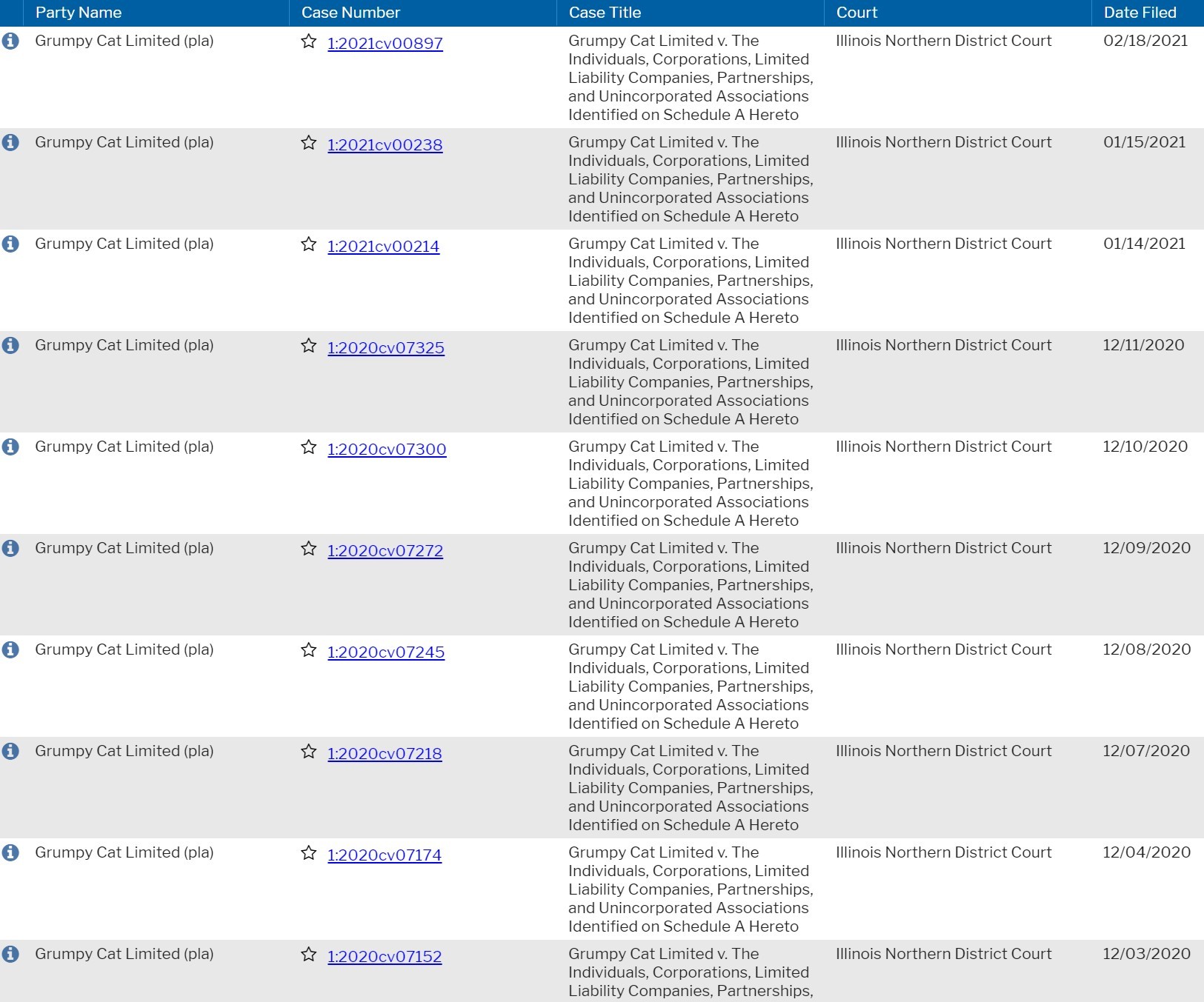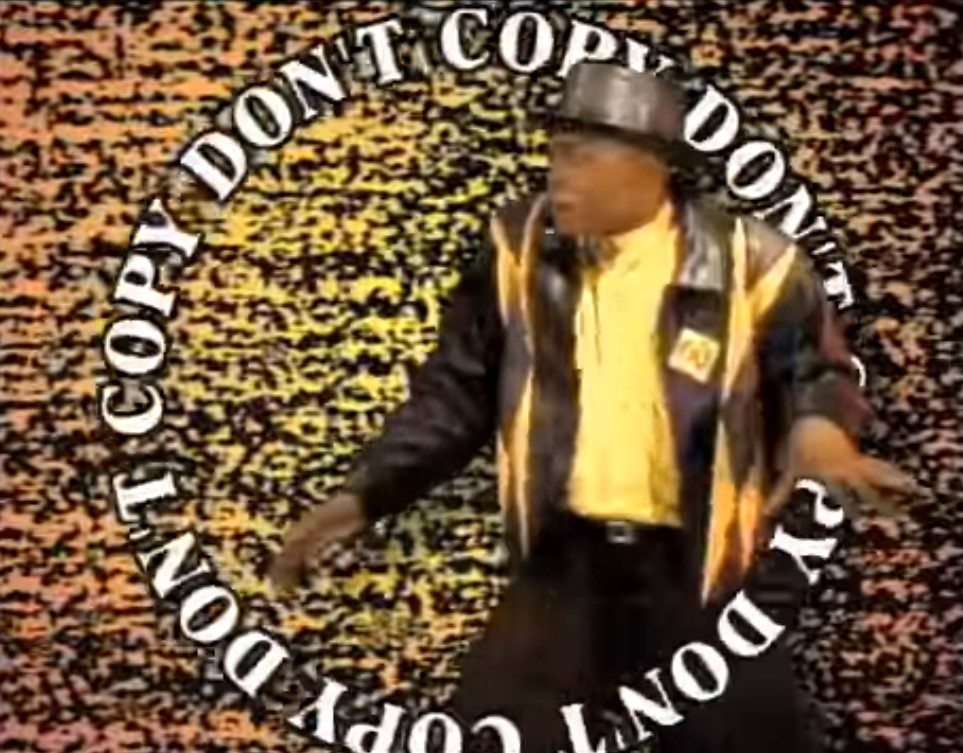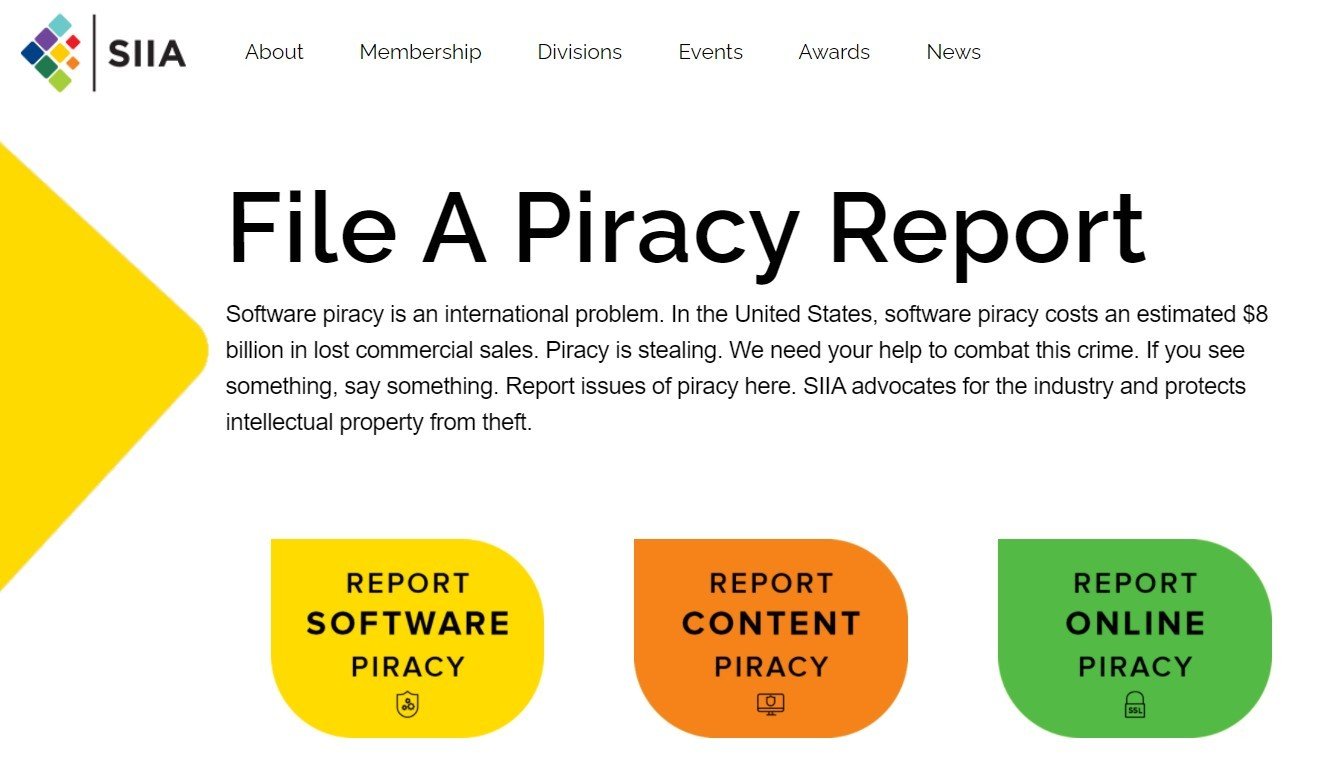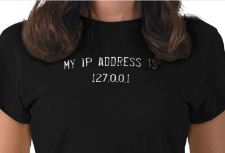 Grumpy Cat is without doubt one of the most famous felines in Internet history.
Grumpy Cat is without doubt one of the most famous felines in Internet history.
The online celebrity was born in Morristown, Arizona in 2012 and passed away seven years later, following complications from a urinary tract infection.
The passing of Tardar Sauce, as she's officially named, made headlines all over the world. While cats are rumored to have nine lives, there's little chance of a comeback. What does live on, however, are the Grumpy Cat copyrights.
Grumpy Copycats
Grumpy Cat's 'owners' have made a lot of money through successful merchandise lines. And they are not alone, as there are many copycats who try to profit from her stardom.
This has resulted in dozens of copyright lawsuits and these certainly haven't stopped after Tardar Sauce's death. On the contrary, legal battles over the Grumpy Cat copyrights are more prevalent than ever before.

Over the past year, Grumpy Cat Limited filed thirteen cases in US federal courts, compared to only a handful in the years prior. These cases all list sellers of unauthorized Grumpy Cat merchandise on sites including Amazon, Aliexpress, eBay, and DHGate.
New Lawsuit
The defendants' details are initially kept away from public view. That's also the case in the latest lawsuit that was filed at an Illinois federal court just days ago. What's clear, however, is that the defendants sell Grumpy Cat products.
"The Defendants create numerous Defendant Internet Stores and design them to appear to be selling genuine Plaintiff's products, while selling inferior imitations of Plaintiff's products," the complaint reads
"As a direct result of the acts of copyright infringement, Defendants have obtained direct and indirect profits they would not otherwise have realized but for their infringement of the copyrighted products."
The names of these sellers are sealed because Grumpy Cat Ltd fears that they may take countermeasures and set up shop elsewhere before a temporary restraining order is issued. This would reduce the effectiveness of the lawsuit.

Looking at earlier lawsuits, these cases typically involve hundreds of defendants. The sellers are relatively anonymous users of sites such as Amazon, with names such as Chengyang, CHUJUO, Bshuiquzhe, Bingbing Store, Berly Home, and Aoxiananc.
Broad Injunction and Millions in Damages
As in earlier cases, Grumpy Cat Limited asks the Illinois court for an order to prevent these sellers from selling Grumpy Cat products without permission. More importantly, they also request an injunction that requires online platforms to cut their ties with these users.
That last request is quite broad, as it is also directed at hosting companies, domain registrars, advertisers, and social media platforms. The request even mentions search engines, which should be required to remove the defendants' websites from their search results.
Finally, Grumpy Cat is asking for statutory damages of up to $2,000,000 for each and every use of its trademark. With hundreds of defendants, that quickly adds up.
Mixed Result in Previous Cases
The demands in the latest Grumpy Cat copyright battle are similar to earlier cases. In previous lawsuits, the response from courts has been mixed. While there is no doubt that Grumpy Cat Limited has a valid case, the demands were too broad for some judges.
United States District Judge Steven Seeger, for example, previously awarded a default judgment, but only for the minimum damages possible.
"Based on the record, there is no reason to believe that the harm is more than de minimis, so the Court awards the lowest amount of statutory damages ($1,000)," Judge Seeger wrote in an order issued last Summer.
'Excessive Restrictions'
None of the defendants responded so Judge Seeger also issued an injunction prohibiting the shops from infringing Grumpy Cat's copyrights. However, many of the restrictions on third-party intermediaries were denied, as these are "excessive".
"Plaintiff's draft order would impose significant, immediate obligations on third parties. Based on the record, the requested relief is excessive.
"Plaintiff also has not made an adequate showing to justify other extraordinary relief, such as transferring domain names, blocking money transfers, and forcing third parties to stop doing business with the Defaulting Defendants," Judge Seeger added.
In a separate case, that is still pending in court, the pendulum swung the other way.
District Court Judge Matthew F. Kennelly granted a temporary restraining order ordering third-party services to stop facilitating access to the rogue sellers. These include iOffer and Amazon, Facebook, YouTube, LinkedIn, Twitter, Google, Bing, Yahoo, web hosts, and domain name registrars.
Money and Assets Seized
Amazon was further instructed to locate any money the defendants have in their account, making sure that it doesn't get paid out while the case is ongoing. But the order basically requires all third-party services to restrain funds and assets.
"Defendants and any persons in active concert or participation with them who have actual notice of this Order shall be temporarily restrained and enjoined from transferring or disposing of any money or other of Defendants' assets until further ordered by this Court," Judge Kennelly wrote.
Thus far these lawsuits have been flying under the radar, but given the broad injunctions that are issued, we'll certainly keep a close eye on them going forward.
From: TF, for the latest news on copyright battles, piracy and more.

 In the early nineties, software companies already realized that piracy posed a major threat to their business.
In the early nineties, software companies already realized that piracy posed a major threat to their business. 
 A few years ago I reached out to an academic researcher, asking for a copy of a paper that was just published in a prominent journal.
A few years ago I reached out to an academic researcher, asking for a copy of a paper that was just published in a prominent journal. 
 Over the past three years, adult entertainment company Strike 3 Holdings has filed thousands of cases in US federal courts.
Over the past three years, adult entertainment company Strike 3 Holdings has filed thousands of cases in US federal courts. Grumpy Cat is without doubt one of the most famous felines in Internet history.
Grumpy Cat is without doubt one of the most famous felines in Internet history. 
